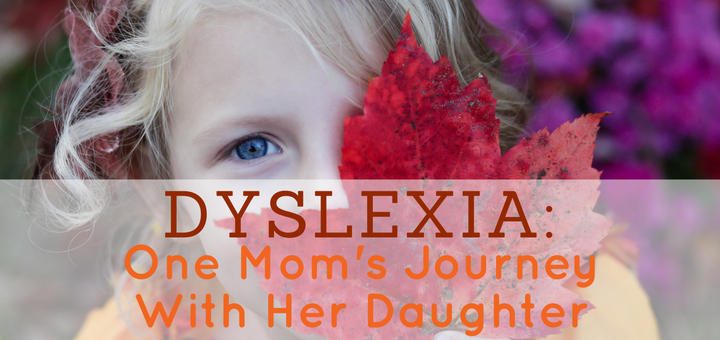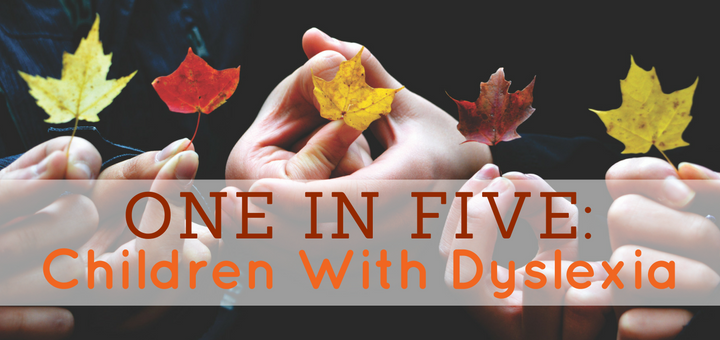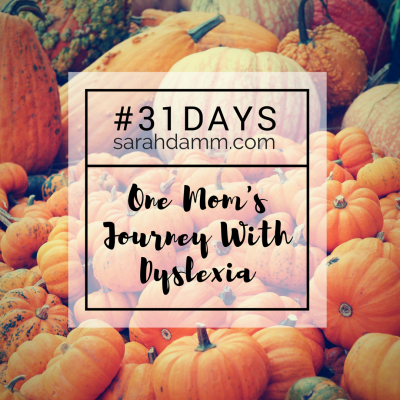Looking back on her preschool years, I now recognize the early warning signs, such as difficulty hearing rhyming words, like cat, hat, and mat.
Throughout Kindergarten, I saw her struggling, but I wasn’t worried, until I started receiving notes from her teacher that she falling behind. In Kindergarten? Really?
No amount of phonetic worksheets would catch her up, though. Nor would a repeat of Kindergarten.
You see, my daughter has Dyslexia. She is the one child in five that does, the 20 percent. Dyslexia involves difficulty with reading, spelling, writing, and pronunciation. It does not, however, affect intelligence. In fact, many people with Dyslexia are bright and gifted.
As she moved through first and second grade, she had positive teachers, who empathized with her learning disability, and I am grateful for their patience and encouragement. But while her classmates were becoming stronger readers, my sweet girl had to focus on survival. She probably worked harder than most students, and I can only call her heroic for persevering in the face of difficulty.
Almost daily, my daughter suffered from stomachaches, most likely caused by anxiety. “I feel nervous,” she often said while getting ready for school. I soothed her butterflies by listing out her gifts, talents, and blessings—over and over again.
[Tweet "Sarah Damm shares the heroic efforts children with #dyslexia make daily in school."]
There was much relief when she finally received an official diagnosis midway through her second-grade year. Her school made accommodations for her, such as a shortened spelling list and no timed tests. However, she still needed to learn how to read and spell with a specific type of learning system that clicks with her specific type of brain.
Through her former preschool teacher, we found a tutor who specializes in Orton-Gillingham, a systematic approach to teaching people with Dyslexia how to read and spell.
Upon my initial meeting with Lyn of The Twenty Percent Club, she gave me invaluable information about how this was going to be a journey—not only for my daughter but also for our whole family.
As my daughter started tutoring with the Barton System, she had to start completely over. I was surprised to observe how she could not hear all of the phonetic sounds, and Lyn had to help her re-discover them.
“If she can’t hear them, she is not going to be able to read and spell them,” Lyn said.
Her first lessons did not even include letters but only sounds associated with pictures and colored tiles.
With twice-weekly sessions, my little girl progressed beautifully over the summer. As she started third grade, she was reading! Not at her grade level, yet, but with confidence at her level.
My daughter’s current teacher continues making accommodations for her, such as a spelling list that coordinates with her tutoring lessons, rather than the official third-grade curriculum. We have been able to find all of the novels she will read this year on audiobook, through an incredible service called Learning Ally, because listening to books is a perfectly legitimate way to read. In fact, sometimes it is the way students (and adults) comprehend best.
As for this journey being one for our whole family, I am learning all about the ins and outs of Dyslexia. I am learning how to advocate for my daughter, and my own empathy for her (and all of my children) has grown. Our family is rediscovering the benefits of reading aloud together. And all of my children are increasing in compassion and appreciation for one another’s gifts, talents, and struggles.
We are just beginning our journey with Dyslexia. She has 18-36 months of remediation before she will be reading at grade level. However, I feel hope that God has an incredible plan for my precious daughter in all of this, and I am honored to be by her side as that plan unfolds.
Since October is Dyslexia Awareness Month, I thought I would share my family’s journey with Dyslexia with the hope of helping another family who might be experiencing something similar with their child.
For more information, please join me on my personal blog this month as I post a 31-day series on Dyslexia. I share resources, book suggestions, encouraging Bible verses, and more.
Copyright 2016 Sarah Damm
About the Author

Sarah Damm
Sarah Damm is a Catholic wife and mother of six children, living in Minnesota. She spends her days running errands, helping with homework, and keeping up with laundry and the family schedule. Sarah loves her faith, coffee, and good books. You can find out more about her at SarahDamm.com.





.png?width=1806&height=731&name=CatholicMom_hcfm_logo1_pos_871c_2728c%20(002).png)
Comments